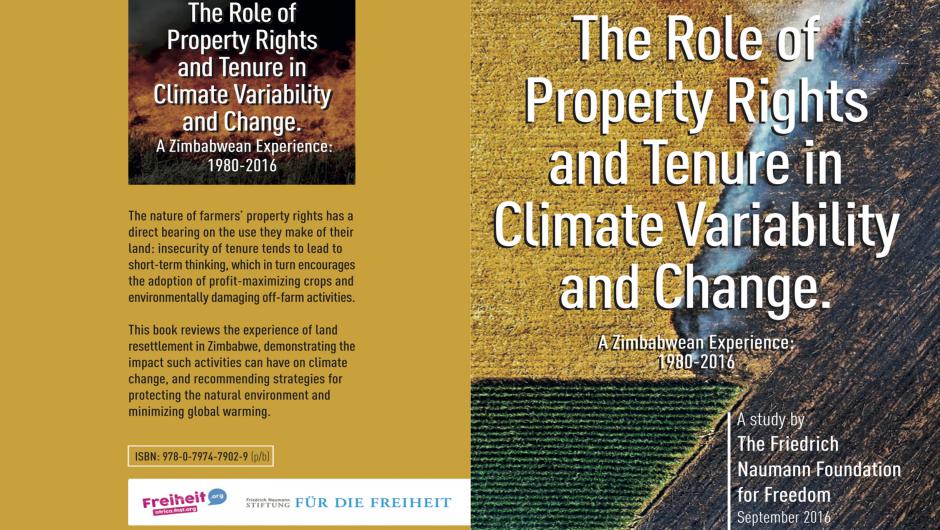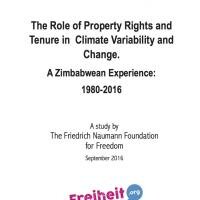The Role of Property Rights and Tenure in Climate Variability and Change


Download The Book Here
The nature of farmers' property rights has a direct bearing on the use they make of their land: insecurity of tenure tends to lead to short-term thinking, which in turn encourages the adoptation of profit making-maximizing crops and environmentally damaging off-farm activities.
This book reviews the experience of land resettlement in Zimbabwe, demonstrating the impact such activities can have on climate change, and recommending strategies for protecting the natural environment and minimizing global warming.
This study examines the relationship between discourses on property rights and climate change in Mashonaland West province, Zimbabwe. It identifies, interrogates and critiques the processes and methods used by the Zimbabwean Government from 1990 to 2015 to compulsorily acquire land from white commercial farmers and how this signaled the violation and collapse of property rights in Zimbabwe. It is argued that tenure insecurity frustrates the resettled farmers provoking uncertainties and anxiety over land ownership which affects their land use and long-term planning decision.
This frustration manifests itself in different ways which include engaging in short-term profitable activities that are nonetheless toxic to the environment. Thus, tenure insecurity forces many resettled farmers to concentrate on tobacco growing and cattle ranching and off-farming activities such as gold panning, pit and river sand abstraction, harvesting and selling of firewood, poaching and brick moulding. However, these activities contribute to climate variability and change. Against this backdrop, it is essential for the Government of Zimbabwe to grant 99-year leases, to allay the fears and anxieties of the resettled farmers, and encourage them to engage in sustainable land use that does not harm the environment and climate.